イベント&アクティビティ
Japan 2023: Articles by DIJ researchers and alumni on Japanese society, economics, history, and politics
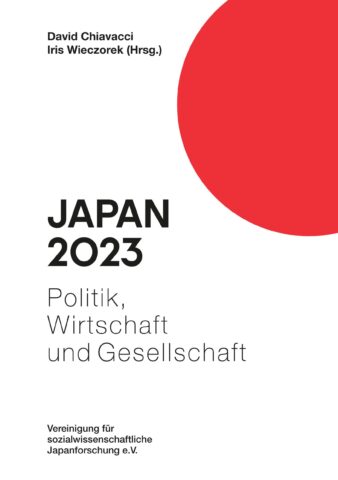
The latest issue of the Japan Jahrbuch, the yearbook published by the German Association for Social Science Research on Japan, includes four articles (in German) written by current and former DIJ researchers on Japanese society, economics, history, and politics. DIJ director Franz Waldenberger and Kostiantyn Ovsiannikov (Atsugi) provide a quantitative review of Japan’s municipalities in demographic transition, while DIJ economist Markus Heckel assesses the Bank of Japan’s monetary policy under Haruhiko Kuroda and Kazuo Ueda. DIJ historian Torsten Weber and Anke Scherer (Bochum) analyse recent developments in historical debates and historical consciousness in Japan. Former DIJ senior research fellow Christian G. Winkler (Fukuoka) examines domestic Japanese politics in 2022/2023. The volume is edited by DIJ advisory board member David Chiavacci and DIJ alumna Iris Wieczorek. For more details please see the table of content. The book is available as softcover and e-book from the publisher here.
Hybrid Study Group on Japanese photography in Manchuria

From 1932 to 1945, professional Japanese photographers, civilians, and soldiers took many pictures in Manchuria and North China. After the official commencement of the war with China in 1937 they began to contribute to the ‘National Reportage Movement’. Japanese authorities employed photographic propaganda to justify the Japanese government’s and Imperial Army’s activities on the continent. However, Japanese soldiers and civilians also used the camera to document and produce memories of their daily lives and experiences in China. This talk aims to bring forward new perspectives on photographic practices and on visually over- or underrepresented aspects of the Japanese occupation of Manchuria and North China. It introduces examples of private photo albums by soldiers stationed in Manchuria and discusses their creation as processes of selecting and ordering images. Drawing on visual anthropology and media history, the presentation will show connections between “imperial” and “patriotic” photography, and between vernacular and formal photographic repertoires. Details and registration here
Online Study Group on Japanese housewives’ post-war anti-pollution movement
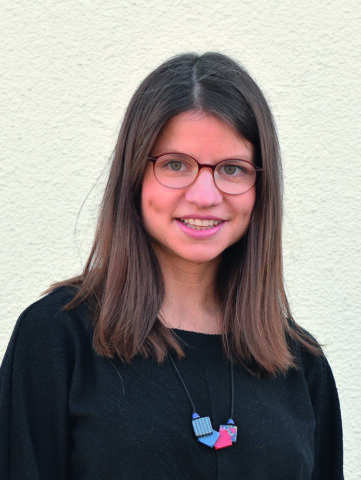
“Give us Our Blue Skies Back!” is the catchphrase under which nearly 7,000 women in Tobata (Kitakyushu) mobilised against emissions from local industries. Most of the activists were ordinary housewives with little formal education and without political experience. Yet, these housewives executed one of the earliest, longest, and most sophisticated anti-pollution movements in Japan’s postwar history, spanning from 1950 to 1969. Engaging in a new way of writing the history of environmental movements, this research shifts the focus from men to women, from highly educated elites to ordinary citizens, from Tokyoites to people in the Japanese periphery, and from the presumed heyday of environmental movements, the 1970s and 1980s, to the 1950s and 1960. It thereby contributes to a new understanding of the democratisation of Japan, gender roles in post-war society, the rise of ecological consciousness and the democratisation of science through ‘citizen scientists’. Details and registration here
DIJ researchers at ‘Popular Cultures of Digitalization’ workshop
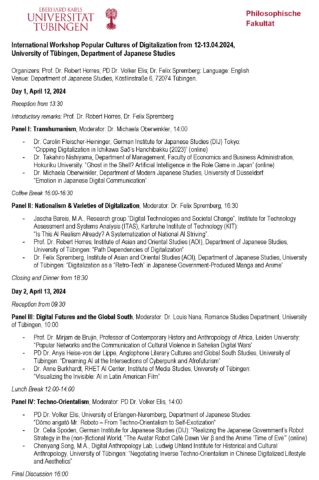 DIJ researchers Carolin Fleischer-Heininger and Celia Spoden will present their latest research results at the international workshop “Popular Cultures of Digitalization” on April 12 and 13. Carolin will present her paper “Cripping digitalization in Ichikawa Saō’s Hanchibakku (2023)” in the first panel on Transhumanism on Friday. On Saturday, Celia will give her paper “Realizing the Japanese Government’s Robot Strategy in the (non-)fictional World: The Avatar Robot Café Dawn Ver.β and the Anime ‘Time of Eve'” in the last panel on Techno-Orientalism. The workshop is organized by DIJ alumni Robert Horres, Volker Elis, and Felix Spremberg at the University of Tübingen’s Department of Japanese Studies.
DIJ researchers Carolin Fleischer-Heininger and Celia Spoden will present their latest research results at the international workshop “Popular Cultures of Digitalization” on April 12 and 13. Carolin will present her paper “Cripping digitalization in Ichikawa Saō’s Hanchibakku (2023)” in the first panel on Transhumanism on Friday. On Saturday, Celia will give her paper “Realizing the Japanese Government’s Robot Strategy in the (non-)fictional World: The Avatar Robot Café Dawn Ver.β and the Anime ‘Time of Eve'” in the last panel on Techno-Orientalism. The workshop is organized by DIJ alumni Robert Horres, Volker Elis, and Felix Spremberg at the University of Tübingen’s Department of Japanese Studies.
Hybrid Study Group on Japanese Environmental Attitudes
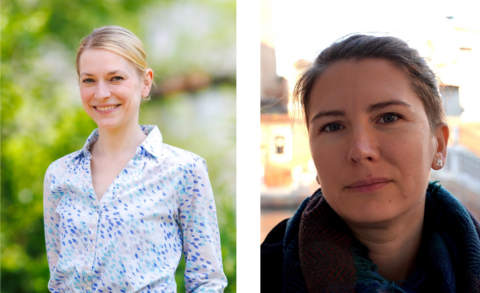
The role of institutional and governmental policies in combating climate change is crucial, yet their success hinges on public compliance and support. The willingness of people to modify their individual habits directly impacts the effectiveness of climate protection measures. Using survey data from the International Social Survey Programme Environment module for Japan between the years 1993 and 2020, this presentation discusses how the perception and reaction to environmental issues and climate change has evolved. The analysis centres on pro-environmental attitudes, willingness to make sacrifices to protect the environment, environmental self-efficacy, and beliefs in external solutions to the climate crisis. The presentation aims to shed light on the intricate relationship between individual attitudes, societal trends, and policy effectiveness in the context of climate change, ultimately providing insights that could guide future strategies for fostering a more environmentally sustainable society in Japan. Details and registration here
Hybrid Study Group on Political Economy of Green Industrial Policies in East Asia
 Green industrial policies are at the center of a distinct sustainability transformation process in East Asia, most notably in China, Japan, and South Korea. These East Asian late-capitalist economies differ in many ways but also share strong commonalities that distinguish them from Western capitalist types. The three countries are now taking a leading role in developing green technologies, industries, and exports. In fact, they have been able to occupy crucial parts of the global value chain in green industries and the international political economy of sustainability. This presentation investigates why the three East Asian countries succeeded in green technology leadership but lack behind in achieving other environmental goals. What are the distinct characteristics that distinguish them from Western market economies and what are the lessons that can be drawn for countries in the Global North and the Global South alike? Details and registration here
Green industrial policies are at the center of a distinct sustainability transformation process in East Asia, most notably in China, Japan, and South Korea. These East Asian late-capitalist economies differ in many ways but also share strong commonalities that distinguish them from Western capitalist types. The three countries are now taking a leading role in developing green technologies, industries, and exports. In fact, they have been able to occupy crucial parts of the global value chain in green industries and the international political economy of sustainability. This presentation investigates why the three East Asian countries succeeded in green technology leadership but lack behind in achieving other environmental goals. What are the distinct characteristics that distinguish them from Western market economies and what are the lessons that can be drawn for countries in the Global North and the Global South alike? Details and registration here
Film screening and discussion of patterns of moving to rural Japan
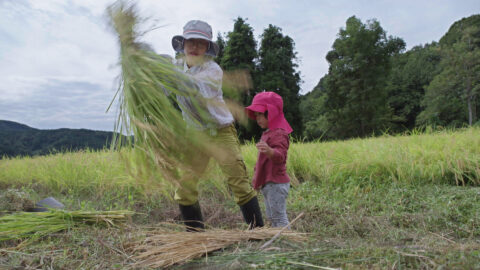
Japan’s regions have been challenged by demographic decline and an aging population for some decades. Despite or even because of these challenges, a small number of people from urban centres of the country decide to move to rural areas. This DIJ Forum (onsite only) combines two different perspectives on migration patterns from urban to rural Japan. Filmmaker Sonja Blaschke introduces her film “Reisfeld statt Tokio” (in German, with English subtitles; 30min), highlighting the story of a young urban woman and her new lifestyle in a small village in the mountains of rural Japan. Tomoo Matsuda then introduces cases of urban professionals who decide to live temporarily or permanently in Japan’s countryside. Challenging the traditional pattern of migration to the nation’s capital, he illustrates the concept of “gyaku-sankin kōtai”, exploring the merits of moving to rural areas. Details and registration here
Sonja Blaschke, freelance journalist
Tomoo Matsuda, Mitsubishi Research Institute
Franz Waldenberger im Gespräch über japanische Infrastrukturpolitik mit brand eins Magazin
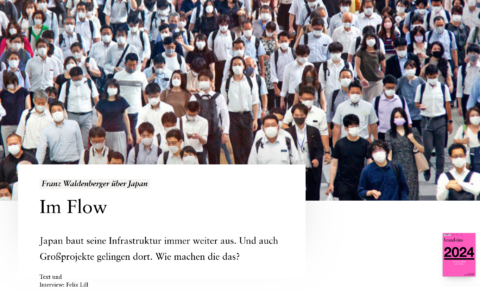
Stuttgart 21, Flughafen Berlin, veraltete Infrastruktur, Verspätungen: Großbauprojekte laufen in Deutschland selten nach Plan. Was macht Japan anders und was kann Deutschland von Japan lernen? DIJ-Direktor Franz Waldenberger erklärt im Interview und Artikel “Im Flow” (brand eins, 1/2024), wie Investitionen in die Infrastruktur und in die Verkehrsplanung Japan einen Mobilitätsvorsprung gegenüber Deutschland verschafft hätten. So könne bei der Nettoreisezeit die Bahn in Japan bis 800 Kilometer mit dem Flugzeug mithalten, wogegen dies in Deutschland nur bis 400 Kilometer gelte. Insgesamt sei der öffentliche Transport in Japan deutlicher besser als in Deutschland, weil für ihn mehr Ressourcen genutzt würden und der Verkehr besser geplant sei. Waldenberger verweist auch auf die relativ zeit- und kosteneffiziente Umsetzung von Großbauprojekten in Japan, die im Alltag nur zu geringen Störungen führe. “Es ist Wahnsinn, welche Großbauprojekte mitten in Tokio stattfinden”, sagt er. Auch wenn neue Stadtviertel oder Verkehrsnetze gebaut würden, funktioniere “drum herum alles ganz normal weiter”.

















 Open Access
Open Access
